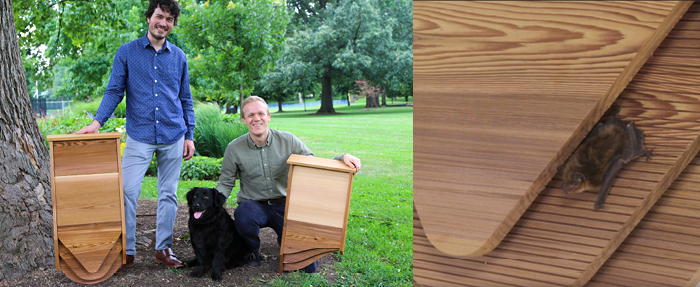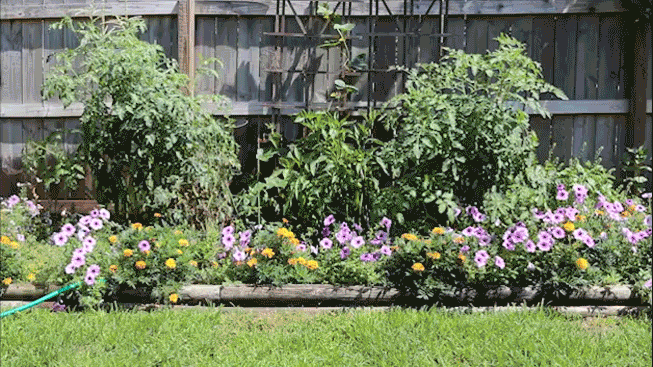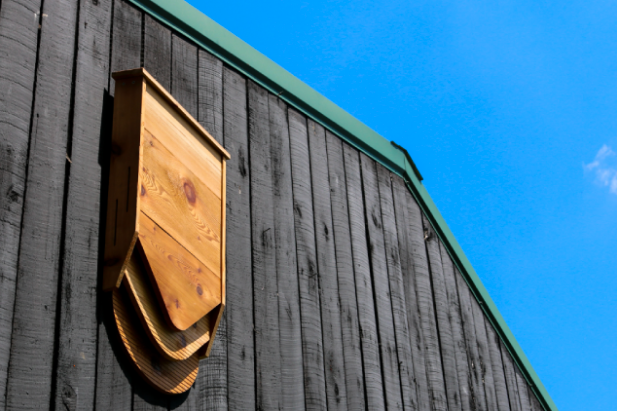
When the travel bug hit, Christopher Rannefors and Harrison Broadhurst, co-founders of BatBnB, found their plans thwarted by a different kind of itch — mosquito bites.
Both planning to start families in the near future, Rannefors and Broadhurst found their itineraries limited by the growing Zika scare. “… Along with most of our friends who are at this same stage in life, we worry a great deal about traveling to Zika hot spots around the world because of the impact it could have on our future children as well as personal health,” explained Rannefors.
Realizing the Zika epidemic — and other insect-borne diseases — were being fueled by the onset of warmer, wetter winters, they set out to find a natural solution for mosquito control. “When we looked at the market all we found were more pesticides and chemicals. There were few good sustainable solutions,” said Rannefors.
Broadhurst and Rannefors knew there had to be a better alternative. Inspired by their childhood experiences with bats, the two began researching the nocturnal creatures and their ability to keep harmful insects at bay.
“Bats are pest control machines,” explained Rannefors. “Yes they eat mosquitoes, but they [also] eat pests of all kinds and save the US agricultural industry between $23-50 billion in crop damage every year.”
Putting their own talents to work — Rannefors is a marketing guru and entrepreneur while Broadhurst is a design and architecture expert — the two came up with a new business venture designed to raise awareness of these beneficial creatures.
Removing the bat stigma

Offering a line of stylish bat houses, BatBnB is designed to be advantageous for both the environment and the dwindling bat population. Taking a different approach to pest control, they offer a natural, eye-pleasing solution for backyard mosquito and insect control.
“We need to take advantage of natural pest control solutions rather than become reliant on harmful chemicals,” said Rannefors. “Bats eat up to 1000 mosquito sized pests an hour and are one of the planet’s greatest natural forms of pest control.”
Constructed to be both an ideal habitat for bats and aesthetically pleasing for humans, BatBnBs are anything but typical bat houses. Backed by acclaimed bat experts Merlin Tuttle and Rob Mies, BatBnB is one of the most endorsed bat house models on the market. According to Rannefors, they are designed to be displayed front-and-center, as BatBnB’s main mission is to start conversations, educating people on why they should value bats, not fear them.
“We all grow up being afraid of bats because popular culture has so deeply ingrained their association with Halloween, bats, monsters, etc,” explained Rannefors. “Bats just suffer from a bad PR problem, and we are here to help change the narrative of their story.”
Creating a buzz for bats with crowdfunding
Finding time to develop BatBnB between their day jobs, Rannefors and Broadhurst turned to crowdfunding to bring their idea to market.
“Designer bat houses were always going to be too risky a venture for us to take out a loan, invest in a few hundred units, and then see if the demand was there,” said Rannefors. “We needed to validate the market demand before we took on that much risk.”
And that’s just what they did with crowdfunding. According to Rannefors, Indiegogo was the perfect vehicle for gauging demand and generating enough funds to bring their product to scale.

After launching BatBnB on Indiegogo, Rannefors and Broadhurst made an unexpected discovery. “People love bats,” exclaimed Rannefors. “We had no idea that there was such a strong community of people out there that care about bats.”
This revelation called for BatBnB to take a new approach to backers — one that focused more on the benefits of bats and why they need help, rather than eliminating fear. “Once we became immersed in an audience who are open minded towards bats and care deeply for animals, we did re-evaluate our marketing tactics a bit,” said Rannefors.
For BatBnB, Indiegogo has been key to creating awareness for their product and mission to preserve bat colonies. Likewise, Indiegogo experts have supported Rannefors and Broadhurst throughout their campaign, offering valuable advice and feedback when needed.
Overcoming obstacles
Building eye-catching and functional homes to help repopulate the bat population was not an easy task.
“[The] biggest challenge has been finding great wood suppliers,” explained Rannefors. “It’s harder than ever to find affordable Western Red or Northern White cedar.” BatBnB’s are only constructed out of durable, rot-resistant cedar to ensure they will withstand outside elements for years without needing to be replaced.
Life after crowdfunding
With less than 30 days left, BatBnB is nearing the end of their campaign on Indiegogo. Exceeding their original funding goal, Rannefors and Broadhurst will use what they raised to build additional units. They also plan to continue selling BatBnB through Indiegogo’s InDemand platform, but be sure to order them now at 27% off before they hit retail.


